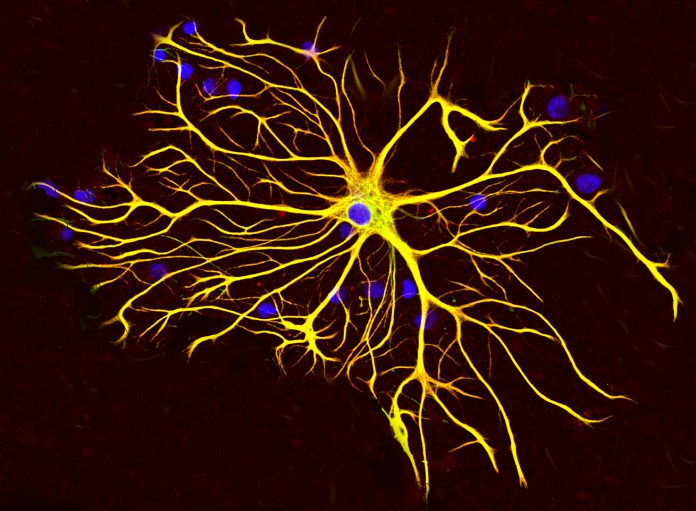- A recently published study has found that depressed individuals have lower levels of astrocytes in their brains.
- The study looked at post-mortem findings from depressed individuals who had committed suicide.
- Researchers believe the findings of the study can guide the development of future drugs targeting major depressive disorder.
A study published in the journal Frontiers in Psychiatry, suggests that astrocytes may play a significant role in the development of depression. A team of scientists at McGill University, Canada, analyzed brain regions of 10 depressed adults who had died by suicide. They then compared their findings with a control group comprising of 10 non-psychiatric individuals who had died suddenly from other causes.
Using a microscope, we counted the number of astrocytes in cross-sections of the brain, enabling us to estimate how many were in each region. We also analyzed the 3D structure of over three hundred individual astrocytes for any differences.
Liam O’Leary, study author
Astrocytes are star-shaped cells that are present abundantly within the brain and spinal cord. They play an important role in regulating neuronal activity. Moreover, they help in the absorption and secretion of neurotransmitters, along with maintaining the blood-brain barrier. Previously, scientists have hinted at astrocytes’ role in mood disorders. However, the current study is the first time researchers have more a more direct link.
Lowers Levels of Astrocytes in Depression
Major depressive disorder, also known as depression, is a mood disorder that affects approximately 163 million people worldwide. The disorder not only affects an individual’s mental health but also physical and social wellbeing.
The findings of the study revealed a reduced number of astrocytes in the brains of depressed individuals. However, no in the structure of the brain cells was reported.
This research indicates that depression may be linked to the cellular composition of the brain. The promising news is that unlike neurons, the adult human brain continually produces many new astrocytes. Finding ways that strengthen these natural brain functions may improve symptoms in depressed individuals
Professor Naguib Mechawar, senior author of the study
According to study author Liam O’Leary, the study can likely help develop drugs that target the loss of astrocytes. Thus, providing more effective solutions for the treatment of depression.
Although the study adds further evidence for astrocyte’s role in depression, it comes with a few limitations. Not only did the study include a small sample size, but also only included male brain samples. Therefore, to investigate how the composition may differ among genders further research is required. Moreover, the cause behind the correlation between astrocytes and depression is still unclear.
Reference:
O’Leary, Liam Anuj, et al. “Widespread Decrease of Cerebral Vimentin-Immunoreactive Astrocytes in Depressed Suicides.” Frontiers in Psychiatry, vol. 12, 2021, doi:10.3389/fpsyt.2021.640963.




